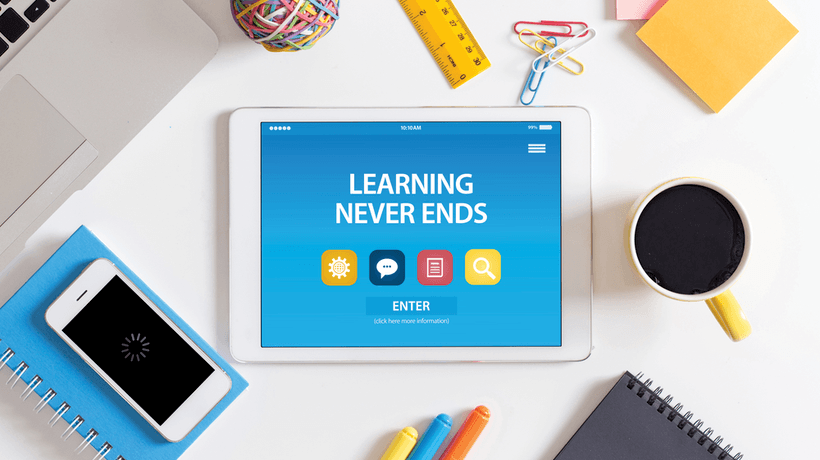How Can eLearning Drive Continuous Improvement?
Organizations prioritizing continuous Learning and Development have a competitive edge in today's fast-paced and dynamic business landscape. The ability to adapt and upskill employees is crucial for growth and success. Enter eLearning—a powerful tool that enables organizations to create a culture of continuous learning. This article will explore eLearning's significant role in fostering professional development within organizations. From its flexibility and accessibility to its ability to deliver personalized learning experiences, eLearning transforms how employees learn and grow in the workplace.
5 Ways eLearning Impacts Continuous Improvement
Flexibility And Accessibility
Flexibility and accessibility are significant advantages of eLearning. Unlike traditional classroom-based training, eLearning empowers employees to learn at their own pace and convenience. Whether it's a short microlearning module or a comprehensive online course, individuals can access training materials whenever and wherever they choose. This flexibility allows learners to seamlessly integrate learning into their busy schedules, reducing barriers to participation and enhancing engagement. Employees no longer need to adhere to rigid training schedules or struggle to balance their work commitments with learning opportunities. Instead, they can tailor their learning experiences to suit their specific needs and preferences, leading to a more personalized and effective learning journey.
Furthermore, eLearning platforms offer the added convenience of 24/7 availability. This means that learning resources are accessible anytime, making them especially beneficial for remote or geographically dispersed employees. Whether an employee is in a different time zone, working from home, or on a business trip, they can access the eLearning platform and continue their professional development journey. This accessibility eliminates the barriers of physical location, ensuring that all employees have equal opportunities to engage in learning activities. By breaking down these barriers and providing round-the-clock access to learning materials, eLearning promotes inclusivity and empowers individuals to take ownership of their learning, fostering a culture of continuous improvement within the organization.
Personalized Learning Experiences
eLearning revolutionizes professional development by enabling organizations to deliver personalized learning experiences that cater to individual needs. By harnessing adaptive learning technologies and leveraging data-driven insights, eLearning platforms can analyze learners' strengths and areas for improvement. This analysis allows for delivering targeted content and recommendations tailored to each learner. As a result, engagement and knowledge retention are significantly enhanced. Learners feel a sense of ownership over their learning journey, knowing that the content they receive is relevant to their unique requirements.
Moreover, personalized learning paths offered by eLearning empower employees to focus on acquiring skills that align with their career aspirations and the organization's overall goals. Organizations demonstrate their commitment to employee growth and development by aligning learning objectives with individual aspirations. This personalized approach not only enhances professional development but also contributes to increased job satisfaction and higher retention rates. Employees feel valued and supported when their learning needs are acknowledged and addressed. They are more likely to be motivated and engaged, knowing that their organization invests in their growth and enables them to reach their full potential.
Empowering Self-Directed Learning
eLearning is pivotal in empowering self-directed learning, giving individuals the autonomy and resources they need to take control of their educational journeys. With eLearning, learners have the freedom to choose what they want to learn, when they want to learn it, and at what pace. The vast array of online courses, modules, and resources available through eLearning platforms provides a wealth of options for learners to explore based on their interests and needs. This self-directed approach to learning encourages individuals to take ownership of their education, fostering a sense of motivation and engagement.
Additionally, eLearning platforms offer a range of interactive tools and features that support self-directed learning. Learners can access discussion forums, virtual communities, and social learning platforms where they can connect with peers, ask questions, and engage in collaborative learning experiences. This sense of community and interaction facilitates knowledge sharing and encourages self-directed learners to seek out new information and perspectives. Moreover, the availability of personalized learning paths and adaptive learning technologies allows individuals to customize their learning experiences according to their skill level, preferences, and goals. By providing the resources and support for self-directed learning, eLearning empowers individuals to become active, independent learners who are motivated to continuously expand their knowledge and skills.
Engaging And Interactive Learning Content
eLearning embraces innovative approaches to create engaging and interactive learning experiences. Through multimedia integration, including videos, animations, and simulations, eLearning captivates learners' attention and enhances understanding. Gamification elements such as quizzes, badges, and leaderboards inject an element of fun and healthy competition, increasing motivation and participation. Furthermore, collaborative features like discussion boards and virtual classrooms promote interaction and knowledge sharing among learners. By leveraging these interactive elements, eLearning fosters active learning, making the educational process enjoyable and impactful.
Measurement And Tracking Of Learning Outcomes
eLearning provides robust measurement and tracking capabilities, enabling organizations to assess the effectiveness of their training initiatives. Learning Management Systems and analytics tools offer insights into learner progress, completion rates, and quiz scores. These metrics allow organizations to identify knowledge gaps, evaluate the impact of training programs, and make data-driven decisions to improve learning outcomes. By continuously monitoring and evaluating the effectiveness of eLearning initiatives, organizations can refine their content, delivery methods, and overall learning strategy, ensuring maximum Return On Investment.
Conclusion
Creating a culture of continuous learning is essential for organizational growth and employee development. eLearning plays a pivotal role in this endeavor by offering flexibility, personalization, accessibility, and engaging content. Embracing eLearning empowers organizations to foster professional growth, stay competitive, and future-proof their workforce in today's rapidly changing business landscape.








